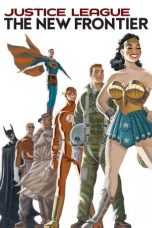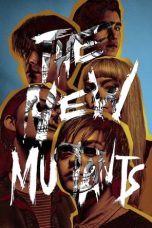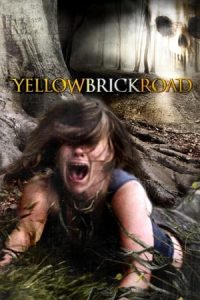- Source: Agua Fria, New Mexico
Agua Fria (Spanish for "cold water") is a census-designated place (CDP) in Santa Fe County, New Mexico, United States. It is part of the Santa Fe, New Mexico Metropolitan Statistical Area. The population was 2,800 at the 2010 census. Agua Fria Village is a "Traditional Historic Community" (THC) as designated by the Santa Fe Board of County Commissioners in 1995 and subsequent Santa Fe County Ordinance #1996-16, as allowed by State Statute (3-7-1.1 and 3-2-3 (C) NMSA 1978).
History
Native Americans lived in this area circa 3,000-3,500 BCE because of the water availability and moderate temperatures (about 30 fewer freezing days than in Santa Fe). Recent archaeological work shows a presence in this area back to 7,000 BCE.
The Spanish under command of Juan de Oñate passed through this area on the way to founding the first capital of New Mexico San Gabriel in 1598 (near present-day San Juan Pueblo – Okhay Owinge). The first recorded settlement was circa 1640 by the grandparents of Major Roque Madrid (the area then known as Pueblo Quemado for a burnt native town in the area). The grandfather Francisco de Madrid may have 'dropped off' from a 1603 expedition to farm this area (he is the namesake of Madrid, New Mexico, a mining area).
As these settlements of Cieneguitas, Agua Fria and Cieneguilla expanded in Spanish Colonial New Mexico, they were called Ranchitos, as the population grew they became a Placita. Agua Fria was identified by two groups. The area by the Church was “La Placita de Los Romeros” and the other one in the area of the Tanque, the “watering hole” (area of Lopez Lane and Camino de Oro Road) became “La Placita de Los Lopez.” As the community grew, it acquired the status of a Village.
In the year 1776, Fray Francisco Atanacio Dominguez gave a census count to his superiors listing Agua Fria with 57 families and 297 persons; but at this time it was still known as Pueblo Quemado.
U.S. Army Colonel John M. Washington's Expedition to Navajo Country passed through Agua Fria on August 16, 1849. This was the first known American reference to the community. The parroquia of Santa Fe was administered under the auspices of the Diocese of Durango, Mexico in the 1800s. Even though the people in Agua Fria had a strong faith, they found it difficult to attend church regularly, so they founded their own mission in the Village in 1835.
Geography
The traditional boundaries of the Village are from Camino Carlos Rael (west boundary of Frenchy's Field Park) on the east to San Felipe Road on the west (rejected Cienguilla Grant boundary), to Arroyo de los Chamisos on the south (present day Santa Fe Place Mall), to Arroyo de los Frijoles on the north (the arroyo is a City of Santa Fe walking trail, but it might be described as Las Companas subdivision, just north of State Road 599). The present-day THC boundaries are much smaller (basically Siler Road on east, Lopez Lane and Jemez Road on west, Rufina Street on south, and State Road 599 on north).
According to the United States Census Bureau, the CDP has a total area of 2.6 square miles (6.7 km2), of which 2.5 square miles (6.5 km2) is land and 0.1 square miles (0.26 km2) (3.8%) is water.
Demographics
As of the census of 2000, there were 2,051 people, 721 households, and 508 families residing in the CDP. The population density was 1,048.7 inhabitants per square mile (404.9/km2). There were 760 housing units at an average density of 388.6 per square mile (150.0/km2). The racial makeup of the CDP was 64.31% White, 0.59% African American, 1.66% Native American, 0.24% Asian, 0.10% Pacific Islander, 28.47% from other races, and 4.63% from two or more races. Hispanic or Latino of any race were 79.23% of the population.
There were 721 households, out of which 41.9% had children under the age of 18 living with them, 47.2% were married couples living together, 14.7% had a female householder with no husband present, and 29.5% were non-families. 20.9% of all households were made up of individuals, and 5.0% had someone living alone who was 65 years of age or older. The average household size was 2.84 and the average family size was 3.29.
In the Census Designated Place (CDP) the population was spread out, with 29.6% under the age of 18, 9.8% from 18 to 24, 34.7% from 25 to 44, 19.3% from 45 to 64, and 6.7% who were 65 years of age or older. The median age was 31 years. For every 100 females, there were 107.2 males. For every 100 females age 18 and over, there were 106.9 males. The median income for a household in the CDP was $32,978, and the median income for a family was $33,456. Males had a median income of $25,539 versus $25,565 for females. The per capita income for the CDP was $14,023. About 21.5% of families and 22.8% of the population were below the poverty line, including 25.7% of those under age 18 and 35.0% of those age 65 or over.
In the Santa Fe CCD #92820, Agua Fria is the 01220 CDP. The 2010 Census had 2,865 people in Census Tract 1203 and included a larger area. This represented a growth of 15.6% over the 2000 Census. This included Block Group 1 with 1,201 people, Block Group 2 with 555 people, and Block Group 3 with 505 people. In the CDP 2,081 were classified as White and 637 as Other Race. Hispanics were 2,176; males 1439, females 1426. Under 18 years of age were 819 individuals; 20-24 were 213 individuals; 25-34 were 439 individuals; 35-49 were 595 individuals; 50-64 were 507 individuals; and 65 and over were 216 individuals. There were 1,027 houses with 966 occupied.
Education
It is within Santa Fe Public Schools.
In popular culture
The Marty Robbins song "Big Iron" is set in the town of Agua Fria, where a murderous outlaw (named 'Texas Red') allegedly faced off against a pursuing Arizona ranger whose revolver is referred to throughout the song as the "big iron on his hip".
See also
List of census-designated places in New Mexico
References
External links
Media related to Agua Fria, New Mexico at Wikimedia Commons
Kata Kunci Pencarian:
- Sungai Gila
- Agua Fria, New Mexico
- Agua Fria
- Big Iron
- List of rivers of Arizona
- Angel Fire, New Mexico
- List of New Mexico communities with Hispanic majority populations in the 2000 census
- Santa Fe River (New Mexico)
- List of tributaries of the Gila River
- Avondale, Arizona
- Bronco (Mexican band)
Justice League: The New Frontier (2008)
New York, I Love You (2008)
Godzilla x Kong: The New Empire (2024)
YellowBrickRoad (2010)
Fantastic Beasts and Where to Find Them (2016)
No More Posts Available.
No more pages to load.














